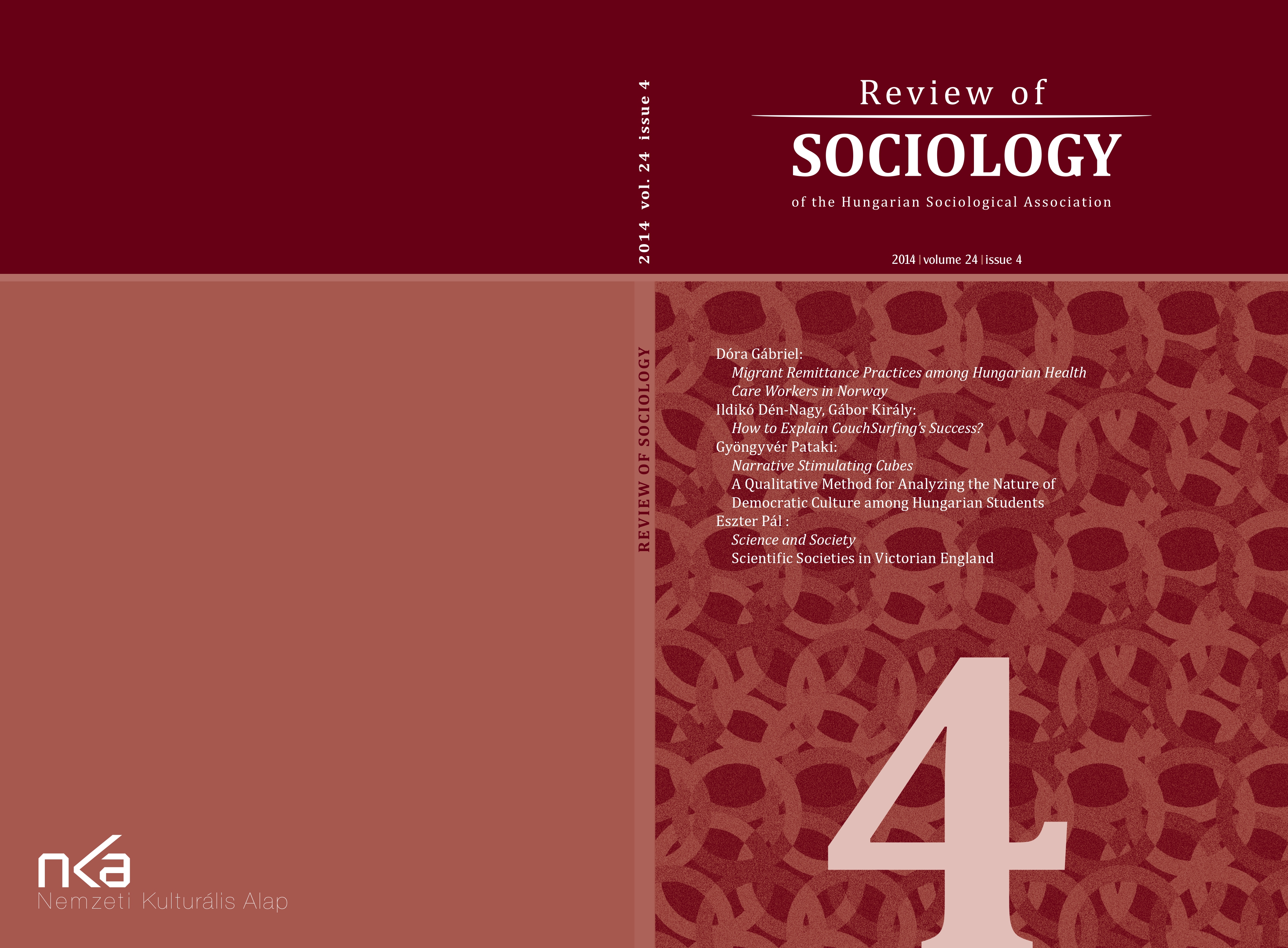Science and Society
Scientific Societies in Victorian England
Absztrakt
The article analyzes the development of scientific thinking and production in England from the early to the late Victorian period. 19th century England saw a thorough change in every sphere of society including that of science. This was a time when the very idea of science – as understood in the 20th century – started to emerge. The article compares the modus operandi of three scientific bodies of utmost importance: the Royal Society, the British Association for the Advancement of Science, and the so-called X-Club. The first one represented an old-fashioned scientific body with a narrow, aristocratic social basis, whereas the BAAS, a reformist, much newer society was founded with the manifest idea of science as a universal, all-encompassing and neutral field, free of political and religious influences. The article shows that despite this official standing, the BAAS still represented a narrow range of scientific, political, cultural and social interests. In contrast to both of these bodies, the X-Club, an informal but highly influential set of nine scientists, introduced the idea of a modernized science. Largely due to their influence and shrewd strategic action, by the end of the century the scientific sphere had become far more independent of extra-scientific influences than ever before. The article concludes, however, that this independence meant a greater need to disguise the social and cultural embeddedness of science with a new set of criteria for scientific legitimacy, rather than actual, full autonomy.





